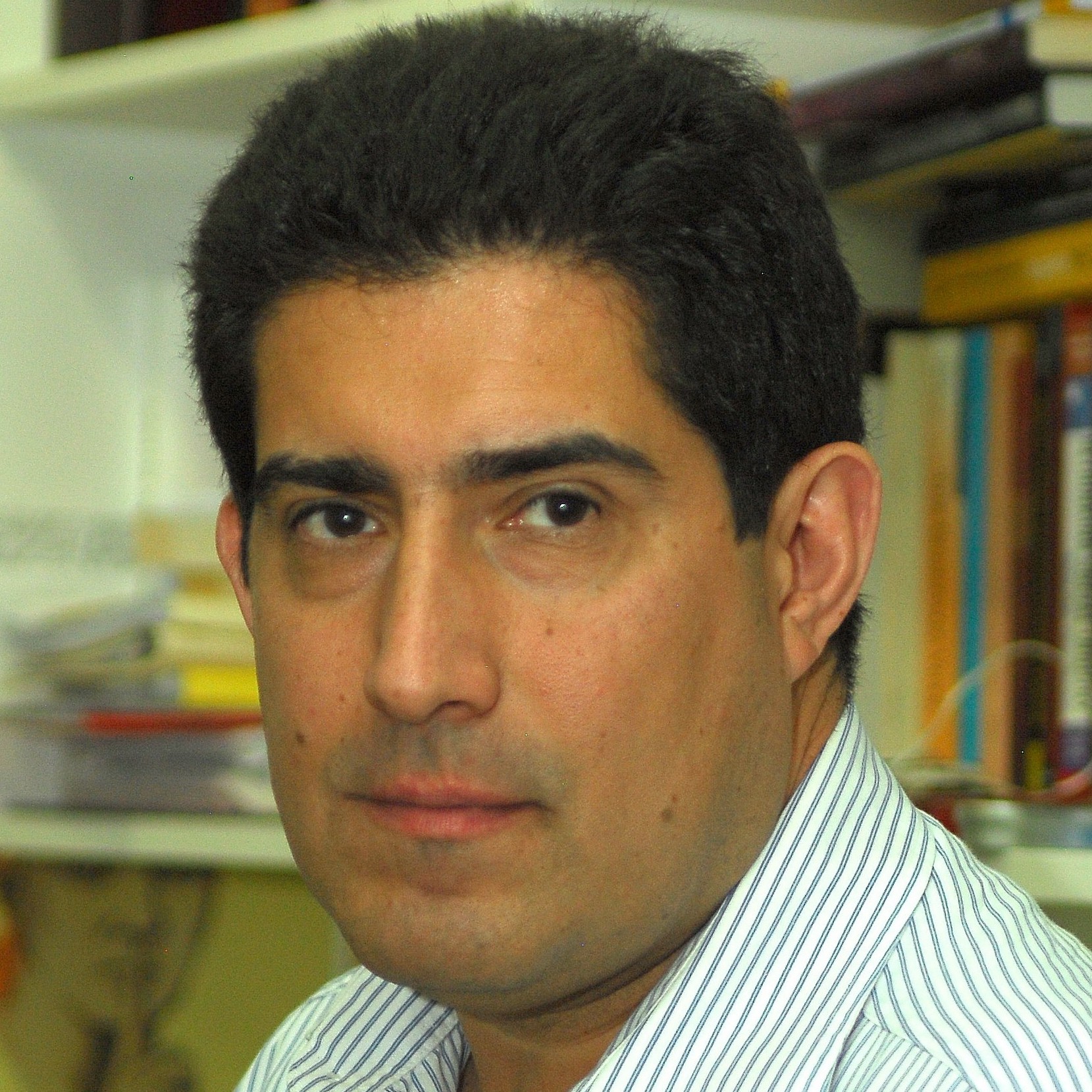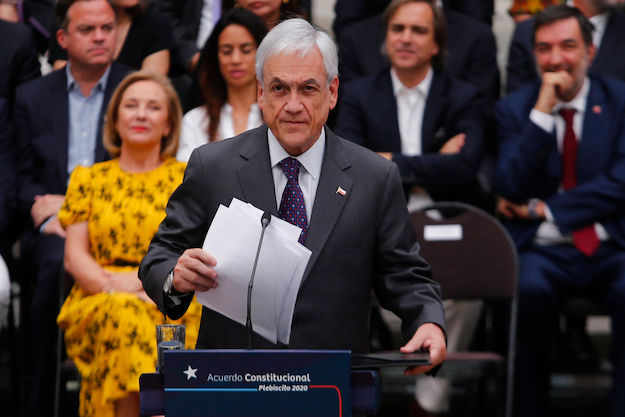Rafael Correa stepped down on May 24 after 10 years as president of Ecuador, making way for his hand-picked successor, Lenín Moreno, but retaining his power as Ecuador’s most influential politician and his control of the legislature through the Alianza País party.
Aware of these constraints, Moreno has sought since his runoff election victory to reassure Correa’s supporters that he will stay the course on the populist and anti-U.S. policies of his predecessor, while at the same time signaling to the international community and Correa’s opponents that he will implement much needed reforms to restore fiscal discipline and lead the country back to sustainable economic growth.
Now that he has been sworn in, the success of the new administration will depend on Moreno’s ability to implement the necessary changes without alienating Correa and Alianza País. Ecuador might have a new president, but it is clear from the start that his predecessor’s shadow will loom large over his tenure.
Correa presided over a period of rapid change. When he won the presidential election of late 2006, the country was undergoing a social and political crisis. No democratically elected president in Ecuador had completed his mandate since Sixto Durán Ballén (1992-1996). After the dollarization of the economy, street protests forced the resignation of then-President Jamil Mahuad in 2000. Former President Lucio Gutiérrez, elected in 2002, was also forced to resign in 2005. Ecuadoreans were eager to elect a president who could complete a term and normalize the country.
Immediately after taking office in early 2007, Correa set out to replace the old political order. As a member of the left-wing wave that came to power in Latin America in the first decade of the 21st century, Correa quickly pushed for the election of a constitutional assembly to replace the 1997 constitution. Having won an overwhelming majority, Correa was able to pass a custom-made constitution that allowed him to expand the power of the state, curtail press freedom and run for re-election. The 2008 constitution called for new presidential and legislative elections. Correa and his Alianza País party easily won in 2009. Having ended the period of political instability and promoted a significant increase in social spending, Correa easily won re-election in 2013. Despite calls by his supporters to reform the constitution to abolish term limits to run again in 2017, Correa opted to step down. He chose Moreno, his vice president from 2007 to 2013, as the Alianza País candidate.
During Correa’s 10-year tenure, Ecuador made impressive progress in expanding social services, reducing poverty, building infrastructure and advancing social and economic inclusion. High oil prices – Ecuador’s main export – helped finance this ambitious government spending program. Despite his strong anti-U.S. rhetoric, Correa opted to keep the U.S. dollar as the national currency, thus forcing some fiscal responsibility, as his government could not print its own money. Though the focus on social spending was commendable, the decision not to save windfall oil profits for a rainy day proved short-sighted. When the commodity boom ended in 2014, the government was forced to borrow to keep funding its generous social programs. After zero growth in 2015, Ecuador fell into a recession in 2016 and remains in recession in 2017. Government debt has skyrocketed and higher interest rates are making it more difficult to borrow new money and service the debt.
Despite adverse economic conditions – and thanks to a divided opposition – Moreno won the presidential election in a contested runoff. The losing candidate, market-friendly businessman Guillermo Lasso, was hurt by his involvement in the 2000 banking crisis that impoverished many Ecuadoreans. Though Lasso cried foul, accusing the government of stealing the election, Moreno was declared the winner. After several electoral defeats for the left in Latin America, Ecuador gave it a good reason to smile.
Moreno probably benefitted from not being Correa. Less confrontational, the 54-year old Moreno was paralyzed after being shot in a robbery in 1998. Sitting on a wheelchair, his demeanor and attitude are friendlier than Correa’s, whose media outbursts and Twitter rants regularly dominated the news. However, Moreno also owes his election to Correa. He won because he was the government’s candidate and the outgoing president strongly campaigned for him – and put the government’s coffers in service of his campaign.
Now that he is president, Moreno needs to make tough decisions. The economy is in recession and the government is heavily indebted. Moreno needs to cut spending to reduce the deficit or his government will face a hard economic landing. Observers who cite Moreno’s alleged pragmatic approach anticipate that the new government will be more amenable to working with the International Monetary Fund (IMF) to help stabilize the economy. Correa took a strong stance against the IMF; Moreno will need to break with him to save the Ecuadorean economy or weather worsening economic conditions.
It is also clear Moreno needs to win over Alianza País’ support to effectively govern. The party controls 74 of the 137-seat unicameral Congress, and most of those legislators are Correa loyalists. Yet, if Correa does indeed move to Belgium (his wife’s home country) as he promised, Moreno will have a chance to be his own man and implement reforms to stop the country from going over the cliff. If he chooses to change course, Correa – the most dominant political leader in Ecuador in the past 50 years – might be tempted to return and lead the resistance. After all, Correa believes that he has found a new path to development and will not let Moreno abandon his roadmap so easily.
Given this context, it is not surprising that Moreno has sent a lot of mixed signals about his intentions. Now it remains to be seen if Moreno can strengthen his hold on power and become his own man, or if he will simply continue to implement Correa’s policies. Ecuador’s new president is as affable as he is hard to figure out. Or it might be that he does not yet know which option to pursue. As he makes up his mind, the new president would do well to look at what happened in Brazil, where President Dilma Rousseff (2010-2016) was never able to deviate from the roadmap handed to her by her predecessor, the very popular and influential Luiz Inácio Lula da Silva (2002-2010). In the end, Rousseff never commanded enough power to make necessary changes, and was removed from office when the economy took a turn for the worse.
If Moreno learns Rousseff’s lesson, he will differentiate himself from his predecessor now that he is office. It will not be an easy path, as Correa and his loyalists will likely fight back. But the alternative is far worse as the economy is headed to a much deeper crisis if no reforms are implemented. For his own sake and for the well-being of Ecuador, Moreno should distance himself from his predecessor’s legacy.
—
Navia is a contributing columnist for Americas Quarterly, professor of liberal studies at NYU and professor of political science at Diego Portales University in Chile.









